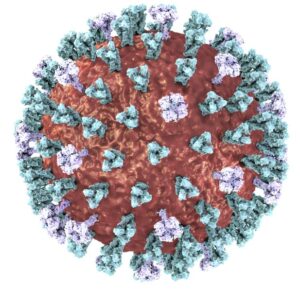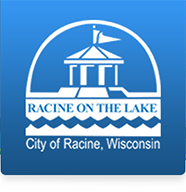News Item

With spring break approaching, the City of Racine Public Health Department is advising everyone, especially travelers, to double-check their vaccination records to ensure they are protected against measles.
Measles is an extremely contagious virus that can spread rapidly through coughing, sneezing, and even just being in the same area as an infected person. Travelers who are unvaccinated can easily contract the virus and bring it back to their communities, making them a potential source of outbreaks.
According to the latest data from the US Centers for Disease Control and Prevention, more than 375 cases of measles have been diagnosed in the United States so far in 2025. This already exceeds the total number of US measles cases in 2024. Significant outbreaks are affecting parts of Texas and New Mexico, with additional cases reported in at least 15 other states. A staggering 90% of those affected have either not been vaccinated or have an unknown vaccination history.
“Unvaccinated individuals traveling to or through areas affected by the virus are at risk of further spreading it, potentially bringing it back home,” said Bobbi Fergus, Deputy Public Health Administrator for the City of Racine. “If you plan to travel for spring break, especially to popular destinations with outbreaks, take a moment to check your vaccination status. If you’re not up to date, getting vaccinated now can help protect your health and the health of those around you.”
The MMR (Measles-Mumps-Rubella) vaccine offers strong protection against measles, preventing serious complications. It’s safe, effective, and provides long-lasting immunity. The two-dose series of the MMR vaccine is 97% effective in preventing measles, and receiving one dose of the vaccine can be as much as 93% effective.
In the City of Racine, approximately 87% of K-12 students had received their full MMR vaccine series for the 2023-2024 school year. For children aged 24 months, approximately 83% had received at least one dose of the MMR vaccine in 2024. To prevent the virus from spreading, public health experts aim for an MMR vaccination rate of 95% across the community.
The Wisconsin Immunization Registry (WIR) allows you to check your vaccination status. However, keep in mind that if you received your vaccines outside of Wisconsin, those records may not appear in WIR. Adults in particular might not have their childhood vaccinations documented.
It’s important to note that the measles vaccine takes time to become effective, typically about two weeks. If you’re in need of a vaccine, here’s how to schedule an appointment:
- If you have health insurance: Contact your primary care provider or a local pharmacy to arrange an appointment.
- If you are uninsured or for children covered by BadgerCare: Schedule an appointment with the Public Health Department by calling 262-636-9431.
Those who are unvaccinated and return from a trip should monitor their health closely. Symptoms of measles often start with fever, cough, runny nose, and watery eyes, followed by a rash that spreads from the head down to the body. Anyone who suspects they might have measles should stay home and contact their healthcare provider before visiting a clinic, as measles is highly contagious and precautions must be taken to protect others.
Learn more about measles and the MMR vaccine from the Wisconsin Department of Health Services: Immunizations: Measles | Wisconsin Department of Health Services



